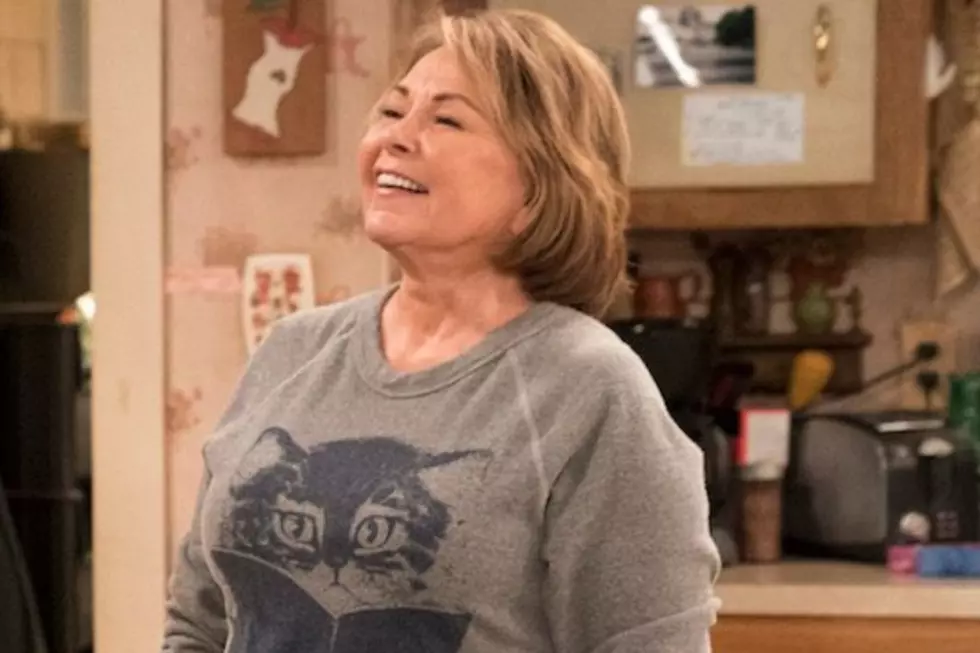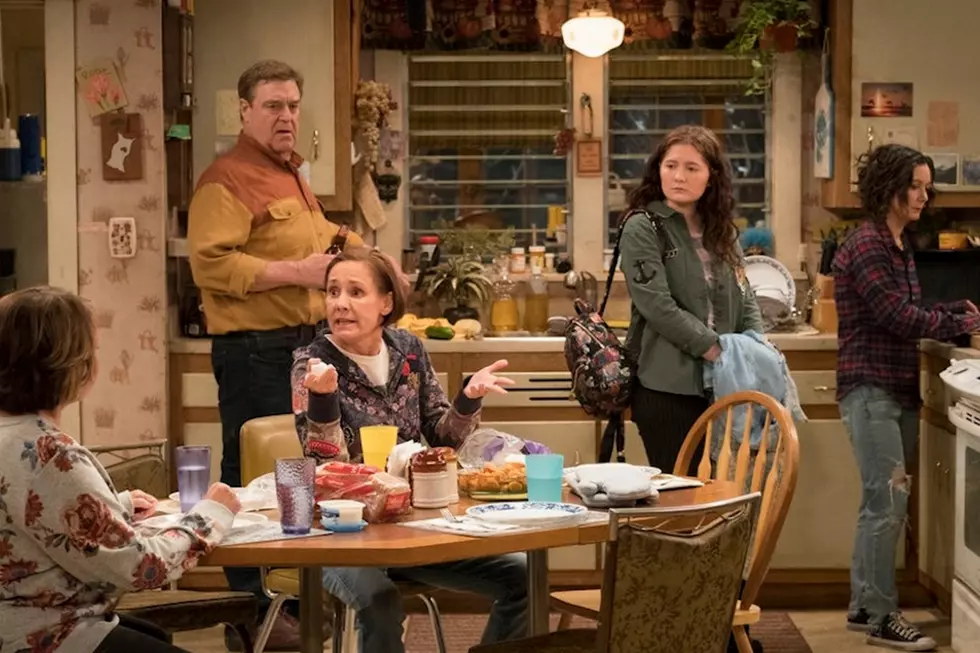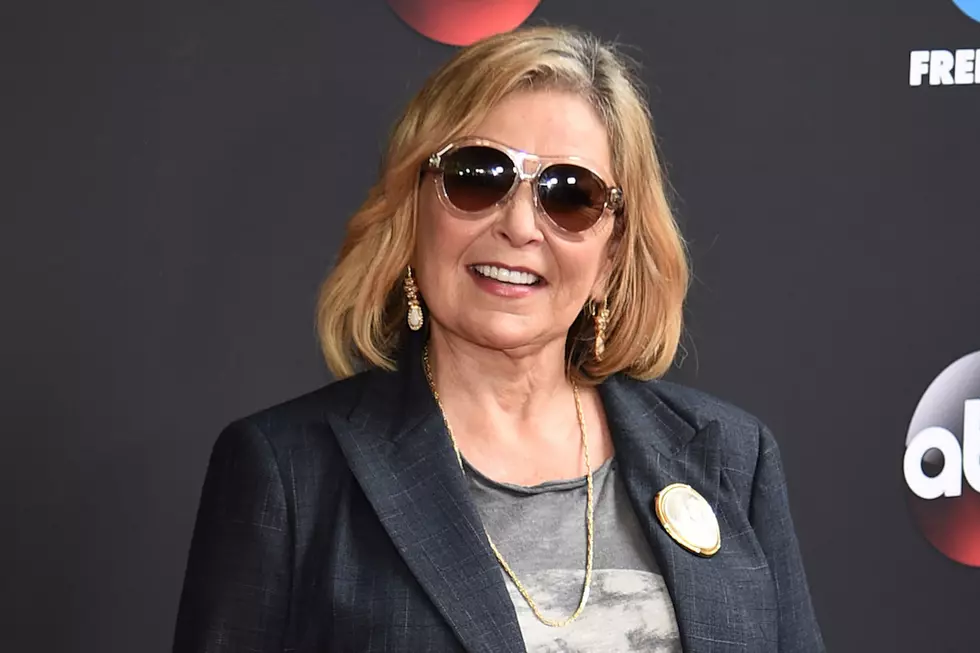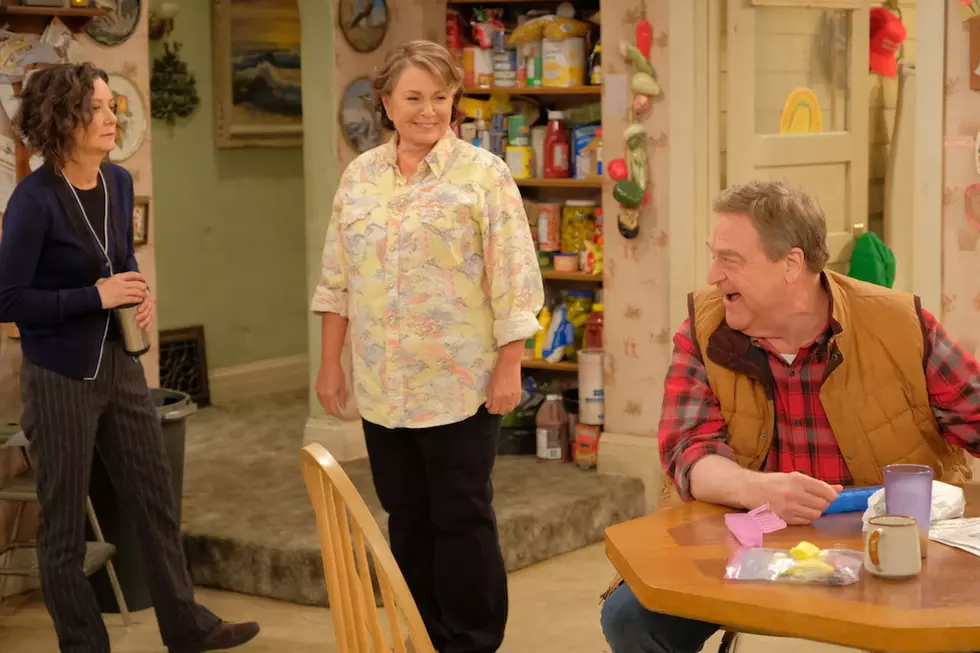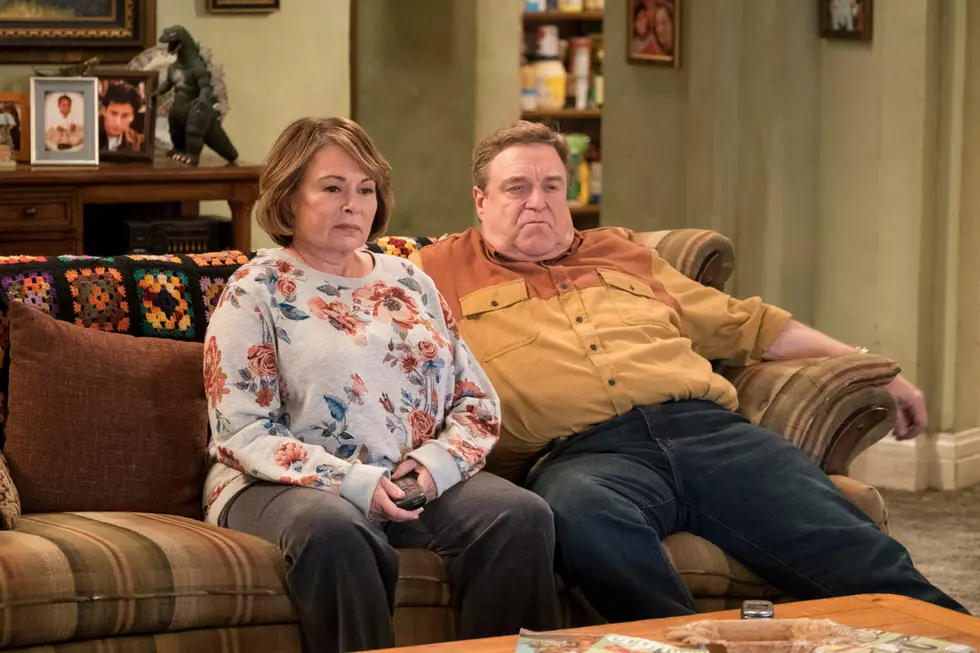
‘Roseanne’s Cancellation Is a Testament to the #MeToo Movement
Since its premiere in March, the Roseanne revival has served as one of the most confounding examples of the ever-intensifying debate surrounding how — if at all — to best separate art from artist. Roseanne Barr, a longstanding celebrity with a sizable amount of wealth and clout, is not Roseanne Conner, the working class, Middle America-bound mother she's portrayed, conjointly, for almost exactly a decade. And her creative impact on the series has markedly lessened in the years since its first finale: Of the nine episodes that aired, Barr has no script credits, and the opening attributions read “created by Matt Williams." Any recognition for Barr comes afterward, under the emptily worded billing, "based on a character created by Roseanne Barr.”
And yet she and her character have forever felt inherently, irrevocably linked. They both share irreverent, often overbearing temperaments, and though Roseanne's politics are decidedly less overt, the same extremist, squarely conservative ideologies. Hell, the entire show was built as a starring vehicle for Barr, and depends almost exclusively on her likeness. Whether or not you still stand behind the Trump-endorsed sitcom, without Roseanne Barr, the person, there is inarguably no Roseanne.
One of the reboot's strongest points was its ability to accurately depict the left-right divide many American families are struggling to reconcile in their own lives, but given the kind of hateful, conspiracy-ripe rhetoric Barr tends to spout on Twitter, it's difficult to see her character's views as independent from her own. They are ingrained, for better or worse, in the very fabric of the series: Silently splayed across a MAGA cap visibly perched not far into the background, and seething beneath Roseanne's every aside about snowflakes, PC-policing and the slow drain of millennials on modern society.
As Vulture's Jen Chaney wrote of Roseanne in April, "Cultural and generational dynamics — including whether we view some people as hillbillies and others as entitled — also shape our attitudes about politics. You can’t talk about any of these issues in isolation and act like they’re not connected to each other and to the state of our union, because they absolutely are."
Which is why the show's swift cancellation on Tuesday (May 29), mere hours after Barr tweeted (and subsequently apologized for) a racist slur against former White House staffer Valerie Jarrett, speaks much less to the morality of ABC than it does to the profound impact of the cultural purging that has engulfed Hollywood in the last year — one with consequences and justice and perhaps, it seems, even real, genuine change.
Because here's the thing: ABC was well aware of the blatant, routinely damaging content Barr has shared, time and again, with her 700,000-plus Twitter followers, and Tuesday's outburst was far from the first controversy she'd found herself embroiled in. And yet, just barely a year ago, they greenlit Roseanne, fully conscious of the fact that it would, in turn, give her an even bigger platform from which to propagate.
In March, five months after the Harvey Weinstein allegations ignited the #MeToo movement and the reckoning that soon followed, they aired the revival's first episode. And all the while, they made some questionable choices about what kind of stories they would and would not allow to air. The network reportedly refused to run an episode of Black-ish that dealt with athlete protests during the national anthem, as well as a Roseanne storyline about the titular pot-stirrer's 5-year-old granddaughter finding an unsecured gun in their home, which would have tied into a larger narrative about gun control.
But it was not until Tuesday, after Whitney Cummings had left as co-showrunner, Wanda Sykes had exited her role as consulting producer, and Emma Kenney, who played Roseanne’s granddaughter Harris, was minutes away from calling her manager to quit the series, that they made the whiplash decision to cancel Roseanne. In that context — and combined with Barr's history — it was less a question of if the show would implode, but when. Barr was just the loose cannon that finally sunk the ship.
That's not to diminish the significance of this particular triumph. ABC has taken a large risk in cutting the cord on an erstwhile profitable, ratings-rich project in order to make a strong statement about its tolerance for racism, even potentially alienating the Trump voters it was apparently targeting. Nor is it to say, necessarily, that Barr is not entitled to free speech, but rather that in engaging with it, she opens herself to the same professional fallout that might come from preaching religion or politics in an otherwise ordinary, secular workplace — whether in-office or on social media.
More than that, though, the series' cancellation is a testament to #MeToo and the thousands of women, minorities and immigrants who have fought so tirelessly to be seen and supported by a medium that has too often shut them out. It shows that, if we keep working, maybe we can bring about an enduring cultural shift — one in which results take hold in hours, not decades. And that, if we shout loud enough, maybe, finally, the rest of the world will begin to listen. Network television is a start.
Celebrities Involved in Career-Ending Scandals
More From PopCrush
